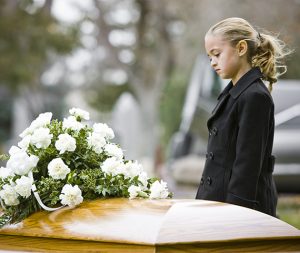by Alan D. Wolfelt, PhD
A common media question I have been asked recently is “What do you think about having funerals before the person is dead?” As you probably know, these are often referred to as “living funerals.”
Living funerals have been referred to by the media as an “up and coming” trend that appears to be growing in popularity. A living funeral is, in fact, just what it sounds like – it is held while the person is still alive. The theme of these gatherings tends to be celebratory and upbeat.
A recent example involved a photo booth where attendees could get a joy-filled photo taken with the guest of honor. In addition, there was a margarita bar and an opportunity for ziplining.
In another instance recently, two hundred people gathered at a conference center to CELEBRATE the life of a woman who was dying of cancer. The event was publicized on local social media platforms and in a newspaper notice. The woman, a well-known member of the community, had written the publicity about the event herself.
woman, a well-known member of the community, had written the publicity about the event herself.
While this woman was quite ill and actively dying, she was insistent at being present at her living funeral. By all accounts, her family and friends appreciated being able to gather, share memories, and CELEBRATE her life. Some people in attendance wrote notes about what she had meant to them. Her family read these notes to her the day following the gathering. She died two days later.
Yes, this event was memorable and meaningful, particularly for the woman who was dying. It was a gathering intended to remember, honor, and recall her life. However, let’s be clear – while these events are valuable to the dying person and those in attendance – they are not really funerals. Nor are they substitutes for funerals.
What is a funeral?
The word “funeral” comes to us from the Latin funus, meaning “death” or “corpse.” We have funerals as a rite of  initiation, not closure. What are we initiating? Life without the person who died. We are initiating our period of mourning. We are also stepping through a process that helps us care for and say goodbye to the body of the person who died, even as the process helps us say hello to our grief.
initiation, not closure. What are we initiating? Life without the person who died. We are initiating our period of mourning. We are also stepping through a process that helps us care for and say goodbye to the body of the person who died, even as the process helps us say hello to our grief.
Since the beginning of time, we (meaning the survivors of the deceased) have had funerals across cultures to help us begin to:
1. Acknowledge the reality of the death
2. Recall the life of the person who died
3. Lend support to one another
4. Express our grief into mourning
5. Search for meaning of life and death, and
6. Take a step toward integrating back into our community in a changed social status.
The problem with premature “funerals”
So what happens when we try to have a funeral before the person is dead? For one, there is no dead body to care for or to help us acknowledge the reality of the death. And for another, because the person is still alive, we’re not yet making the transition from internal grieving to external mourning.
It’s true that when someone is dying or has a terminal illness, we begin to grieve long before they die. This is called anticipatory grief. We essentially start to rehearse what it will feel like after they are gone. This is normal and necessary, and it does help us move intellectually closer to integrating the reality of the death into our continued living. Essentially, we step onto death’s doorstep.
But as anyone who has been in this position can tell you, anticipating a death is not the same as experiencing a death. We’re never really ready when a death occurs. The funeral after the person has died is essential to mark the “before” from the “after.”
And so, ceremonies held before the death may bring us to the doorstep of our grief, especially if the person we are honoring is very near death. However, we can’t get ahead of ourselves.
Anticipating a death is not the same as acknowledging the reality of a death and experiencing a rite of passage. Coming together with one another before a death is not the same as supporting one another after a death. Expressing our anticipatory grief is not the same as expressing our profound and immediate grief.
And considering the meaning of the life of a person who is present is not quite the same as considering the life of a person who has died as we bear witness to the body that has previously animated life. Of course, we must always be respectful of beliefs that preclude the practice of spending time with the body.
When we fool ourselves into thinking that a living funeral is a substitute for a funeral after the death, we may well be tricking ourselves into thinking we can go around our grief instead of through our grief. We’re not really initiating our mourning. Instead, we may be trying to stop it before it begins.
So we are well served to remind ourselves and teach others that a gathering before the death is not a substitute for a meaningful funeral. While living funerals may be helpful prior to the death, as a stand-alone service it just might be unfinished.
CLICK HERE TO JOIN AFTERTALK
Free, Non-Profit and Non-denominational
We invite you to submit your thoughts, essays, poems or songs. Please send to info@aftertalk.com. To see past AfterTalk Weeklies, CLICK HERE

I appreciate Dr. Wolfelt sharing this piece. At this early stage I am not quick to say that there needs to be a funeral. I think it’s important as a professional Spiritual Caregiver and Bereavement Coordinator to closely listen and honor what family want to do that may honor their deceased loved one.